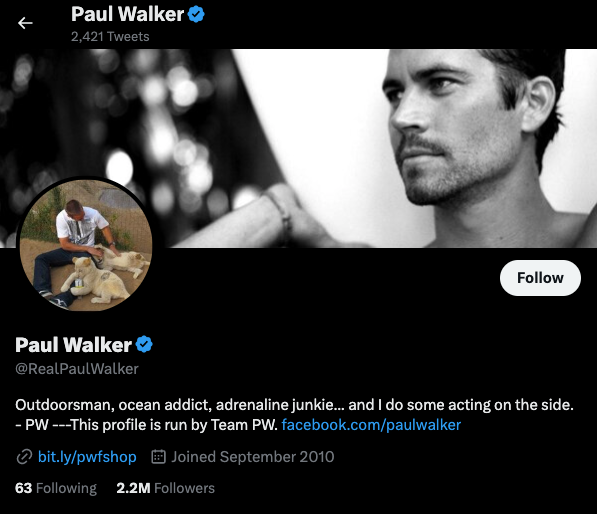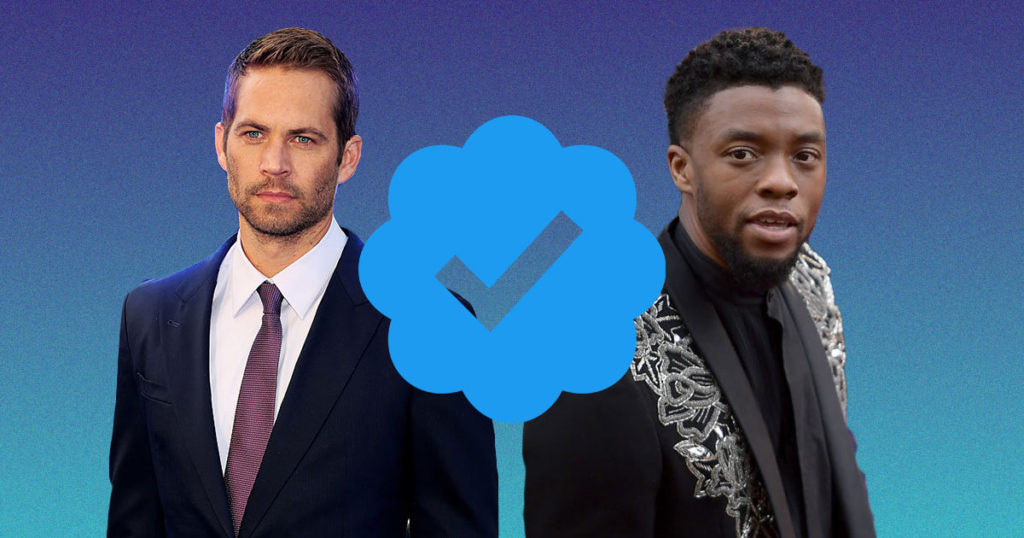|
Getting your Trinity Audio player ready...
|
Twitter recently added posthumous blue checkmarks to the accounts of several deceased celebrities, claiming that they had paid for Twitter Blue subscriptions and verified their phone numbers. Among the celebrities who received the posthumous blue checkmarks were Kobe Bryant, Norm Macdonald, Anthony Bourdain, Chadwick Boseman, Paul Walker, and Michael Jackson. The move came as Twitter purged legacy verifications, displaying checks only on profiles that paid for the subscription service.
Although Twitter CEO Elon Musk has not mentioned the deceased celebrity accounts online, he appeared to acknowledge reports that he had mocked the leaders of the #BlockTheBlue campaign, which was a viral Twitter crusade to silence subscribers to Twitter Blue by blocking them. Musk wrote in a tweet with a laughing emoji, “A troll, me??” in response to reports that he had given leaders of the anti-Blue movement Verified Blue badges of their own.
However, posthumous Twitter Blue badges may violate laws protecting consumers from false endorsements. Under California’s Civil Code 3344.1, anyone who uses a deceased personality’s name, voice, signature, or likeness for purposes of advertising or selling products, goods, or services, without the person’s consent is liable for $750 or the number of actual damages sustained, whichever is greater.


Alejandra Caraballo, a clinical instructor at Harvard Law Cyberlaw Clinic, tweeted that falsely adding blue checks to large accounts could constitute a deceptive trade practice, considering that the blue check indicates that someone is subscribed to Twitter Blue and paying for a product. She added that anyone given this without their approval could have grounds to bring a false endorsement claim, which would be separate from a Federal Trade Commission investigation over deceptive trade practices.
While Twitter visually removed legacy check marks handed out to verified users over the years, a brief look at the code revealed that the company simply hid them from public view and did not actually remove them. The social media platform is now offering gold checks for “verified organizations” and grey checks for government organizations and their affiliates, but it was not always clear why some accounts had them and others did not.
The blue checks debacle is just the latest in a series of problems at Twitter since Musk bought it for $44 billion last year. The hashtag #BlockTheBlue briefly trended over the weekend as a campaign to block anyone with a Twitter Blue subscription gathered steam. An account @BlockTheBlue – which had 39,000 followers – was suspended by Twitter.
In response to the backlash, Twitter issued a statement saying that the blue checkmark was not intended as an endorsement, but rather as an indicator of identity verification and access to premium features. However, this explanation has done little to quell the criticism.
The issue of false endorsements has become increasingly relevant in the digital age, as more and more people rely on social media platforms for news, information, and recommendations. The use of celebrity endorsements has long been a common marketing strategy, but the rise of social media has made it easier for companies to exploit the popularity of public figures without their consent.
While there is no doubt that Twitter’s blue checkmark system is intended to provide users with a measure of credibility and authenticity, the company’s decision to award the badge to deceased celebrities raises serious questions about the ethics of such practices. As Alejandra Caraballo pointed out, anyone who is given a blue checkmark without their approval could potentially have grounds for a false endorsement claim.
In addition to the legal implications of false endorsements, there are also broader implications for the way we perceive and trust information in the digital age. The rise of fake news and misinformation has eroded public trust in traditional sources of information, and the use of false endorsements only serves to further undermine our ability to distinguish between reliable and unreliable sources.
Twitter’s decision to award blue checkmarks to deceased celebrities may seem like a minor issue in the grand scheme of things, but it is indicative of a larger problem with the way we use social media to shape our perceptions of the world around us. As consumers, it is important that we remain vigilant and skeptical of any claims made on social media, and that we hold companies accountable for any unethical or deceptive practices they engage in.



